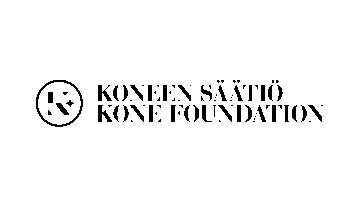Call for Papers: Cultural Appropriation in Context Symposium
Cultural Appropriation in Context: Histories, Encounters, and Power
International Symposium
Date: 22 May 2026
Location: University of Turku, Finland & Online
Organized by: The ApproFI Project (The Appropriation of Indigenous Cultures in Finland throughout the 1900s), funded by the Kone Foundation
Deadline for Abstracts: January 15
The concept of cultural appropriation has become increasingly debated in public, academic, and artistic spheres, particularly in the wake of global social movements and heightened awareness of historical injustices. Scholars of anthropology, cultural studies, and philosophy have explored the power relations inherent in, and the varied impacts of, borrowing symbols and material items across cultures (Ziff & Rao 1997; Nguyen & Strohl 2019; Matthes 2019; Hess 2021). Appropriating from Indigenous cultures, for instance, has bolstered the construction of national identities and narratives (Deloria 1998). While often framed as a contemporary controversy, cultural appropriation is a phenomenon with deep historical roots tied to colonialism, nationalism, migration, tourism, literature, visual art, and popular culture. However, little scholarship to date has engaged with its historical dimensions and trajectories (Loar et al. 2017).
This international hybrid symposium invites scholars from across disciplines to explore the histories of cultural appropriation from diverse temporal, regional and cultural perspectives. We seek contributions that examine how and why cultural symbols, practices and representations have been borrowed, adapted and circulated across cultural boundaries throughout history.
A central focus of the symposium is to critically investigate the motivations behind cultural appropriation. Why do individuals, institutions, and societies appropriate from cultures not their own? What emotional, political, aesthetic, or ideological needs are being fulfilled through these acts of stealing, borrowing, and contested ownership? What meanings are created, imposed, or altered in the process? We are especially interested in how appropriation functions as a means of identity formation, cultural fascination, spiritual longing, political posturing or the assertion of symbolic power – and how these motivations shift across historical and geographic contexts.
Key themes include (but are not limited to):
– Cultural appropriation in colonial and settler colonial contexts
– Appropriation from Indigenous cultures, literatures, and other forms of creative expression
– Indigenous interpretations of and responses to appropriation
– Appropriation and national identity formation
– Tourism, media and the circulation of cultural symbols
– Emotional, spiritual and ideological motivations for appropriation
– Appropriation as a political tactic or maneuver
– Cross-border appropriation and transnational cultural flows
– Representation, reinterpretation, and symbolic borrowing
– Methodological and theoretical approaches to the history of cultural appropriation
Outcome: Edited Volume
Following the workshop, selected participants will be invited to contribute to an edited volume that brings together original historical and interdisciplinary research on cultural appropriation across different regions and eras. The volume will be co-edited by Reetta Humalajoki (University of Turku) and Sonja Dobroski (University of Manchester) and submitted to an internationally respected academic press. This publication aims to expand current understandings of cultural appropriation by foregrounding its historical dynamics and the motivations that drive cultural borrowing.
Featured speakers/discussants:
- Pirita Näkkäläjärvi, Doctoral Researcher at the Sibelius Academy, University of the Arts Helsinki, and President of the Sámi Parliament in Finland
- Renae Watchman, Associate Professor of Indigenous Studies, McMaster University
- David Stirrup, Professor of English and Director of the Center for Indigenous and Settler Colonial Studies, University of York
Submission guidelines
Please submit an abstract 250-300 words along with a short biography to sonja.dobroski@manchester.ac.uk & reetta.humalajoki@utu.fi
We welcome proposals for academic papers, creative or practice-based submissions, and historically informed case studies. The workshop encourages dialogue between anthropologists, historians, artists, Indigenous Studies scholars, philosophers, cultural studies scholars and others engaged in the study of power and culture.
The event will be held at the University of Turku, with a hybrid attendance option. There will be no registration fee, but attendees will need to cover their own travel and accommodation costs. Please indicate in your submission whether you intend to attend online or in person.

